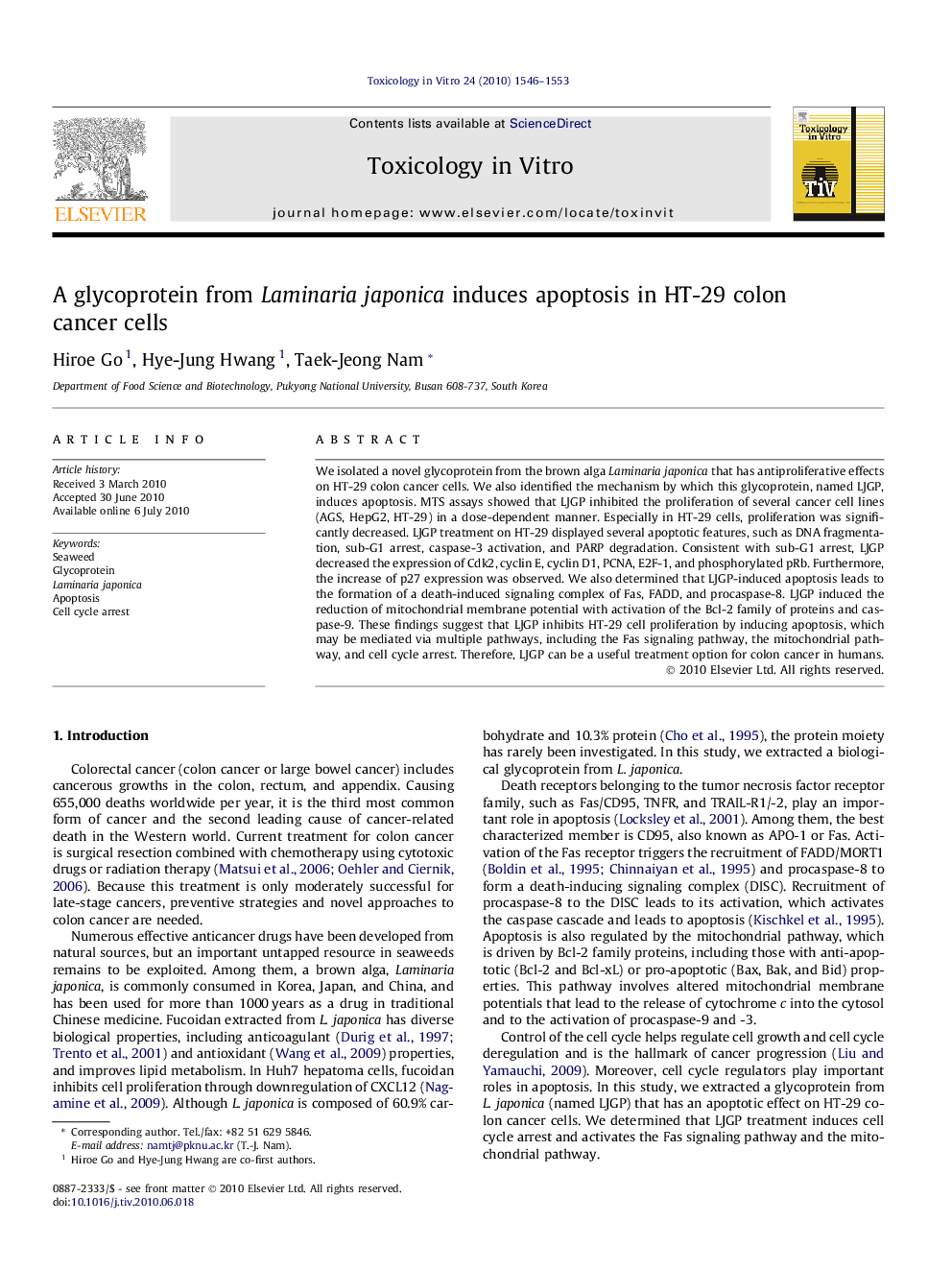| Article ID | Journal | Published Year | Pages | File Type |
|---|---|---|---|---|
| 2603196 | Toxicology in Vitro | 2010 | 8 Pages |
We isolated a novel glycoprotein from the brown alga Laminaria japonica that has antiproliferative effects on HT-29 colon cancer cells. We also identified the mechanism by which this glycoprotein, named LJGP, induces apoptosis. MTS assays showed that LJGP inhibited the proliferation of several cancer cell lines (AGS, HepG2, HT-29) in a dose-dependent manner. Especially in HT-29 cells, proliferation was significantly decreased. LJGP treatment on HT-29 displayed several apoptotic features, such as DNA fragmentation, sub-G1 arrest, caspase-3 activation, and PARP degradation. Consistent with sub-G1 arrest, LJGP decreased the expression of Cdk2, cyclin E, cyclin D1, PCNA, E2F-1, and phosphorylated pRb. Furthermore, the increase of p27 expression was observed. We also determined that LJGP-induced apoptosis leads to the formation of a death-induced signaling complex of Fas, FADD, and procaspase-8. LJGP induced the reduction of mitochondrial membrane potential with activation of the Bcl-2 family of proteins and caspase-9. These findings suggest that LJGP inhibits HT-29 cell proliferation by inducing apoptosis, which may be mediated via multiple pathways, including the Fas signaling pathway, the mitochondrial pathway, and cell cycle arrest. Therefore, LJGP can be a useful treatment option for colon cancer in humans.
